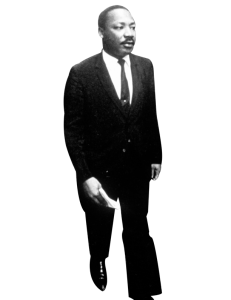We can all agree that there is a strong liberal agenda within the faculty on campus. One professor, for example, was mocking another of her colleagues on the statement, “the biggest problem America faces today is that of the ‘nanny-state.’” Steve Jones, last semester, wrote an exceptional article about the manipulation of government-funded incentives.
Many of these incentives were initially established in order to provide temporary aid. Unfortunately, this temporary fix has turned into a permanent solution. A solution that leaves both you and myself (aka taxpayers) having to pick up the slack. Wake up America!
In a quote from the Declaration of Independence (a document both faculty and students, who think taking advantage of the system is a right, should brush over) writes:
“We hold these truths to be self-evident, that all men are created equal, that they are endowed by their Creator with certain unalienable rights that among these are Life, Liberty and the pursuit of Happiness.”
If we are all created equal, why is it that I find many Americans stating government-incentives such as food stamps, welfare programs, filing for unemployment, filing for disability, are falling under the category as “unalienable rights?”
Again, wake up! These are not, nor have they ever been, rights – but privileges. Why is the term privilege, a benefit that is given to some people and not to others, often considered a right? It’s simply because the state of our society is exponentially becoming a society of consumers, where one uses up and absorbs all the energy of the one who produces.
The definition of produce is, “to bring forth; to create by physical and mental effort.” What is the product of a mass of individuals who manipulate the system, cripple themselves and in essence steal from the American taxpayer?
Nothing, and why? Because those individuals, the consumers, cheat the system out of legitimate issues ranging from single mothers with multiple children to veterans with physical or mental ailments.
Bottom line, when we as a whole begin to add “government hand-outs” as a right, we then lose the freedoms of liberty, pursuing happiness and ultimately, the quality of life.
The individual begins at that point to lose one’s potential, drive and motivation to succeed beyond imagination. At that point, if enough people are on board the consumer bandwagon, we lose our producers. In essence, we lose the incentive of the American Dream.
Many readers are probably under the impression that anybody who thinks this way has more than likely been and is currently more financially privileged.
Therefore, one would probably consider me to fall under that category. This couldn’t be further from the truth.
It was my father who told me at 16 I was to start looking for a job in order to pay for my college.
News flash: they had the money to send me to a four-year college (more than once). From there I started my own lawn business.
From two small lawns came 32, which would send me to college 100 percent debt-free for two years.
However, when rain doesn’t come, grass doesn’t grow. My business tanked, and soon I enlisted in the U.S. Army.
Ultimately, it gave me two more years of being debt-free, money in my pocket and the opportunity to become an officer through the ROTC program right here on campus.
Was it luck? No. Was it networking? No. It was determination. It was being a producer. It was the thought of looking beyond me and my problems. This is my American Dream at work, Racers. What’s yours?
Letter by David Madewell, Senior from Owensboro, Ky.

On May 15, 1954, the U.S. Supreme Court ruled segregation unconstitutional in the case of Brown v. Board of Education of Topeka, Kan.
This ruling came at a pivotal moment in the battle for civil rights and helped pave the way for numerous opportunities for African-Americans in the battle for equality.
From the marble steps in Washington, D.C., the edict came down to the woods of western Kentucky, and our Murray State College, as it was known at the time, opened its doors to people of color. Mary Ford Holland enrolled at Murray State, becoming the first African-American student here, and she was soon joined by Geneva Arnold, Bobby Brandon, Arlene Keys and Willie Earl Perry.
On the golden anniversary of the desegregation of Murray State, we remembered the first freedom fighters as we honored that year’s graduates; for without Mary Ford Holland, we all would not be here today. Just as the early pioneers carved trails into the forbidding American wilderness, Nancy Tyler Demartra, the first African-American graduate, forged the path for other students of color at Murray State.
This was made possible by the tireless efforts and ultimate sacrifice of 1964 Nobel Peace Prize winner, Martin Luther King Jr., whom we honor with a National Day of Service through community projects and activities across the country.
Dr. King had a vision that we could live in a world that judged people on the things they could control versus the things they could not.
This is the interpretation of his famous quote, “I have a dream this afternoon that my four little children will not come up in the same young days that I came up within, but they will be judged on the basis of the content of their character, not the color of their skin.”
Dr. King spent his life seeking common ground, where people from all segments of life could collaboratively address the major social issues facing the nation. His work inspired a civil rights movement that was founded on diversity and inclusion.
He believed it was important to speak out on injustice and inequality everywhere.
And while Dr. King would surely be encouraged by the strides we have made as a nation relative to diversity, I believe he would be somewhat discouraged with our progress on economic inequality.
The final moments of his life were spent speaking out for fair pay and working conditions for African-American sanitation workers in Memphis, Tenn.
Dr. King stated, “Our lives begin to end the day we become silent about things that matter.” Ask yourself these questions.
Where will you speak and where will you remain silent? Does economic inequality matter? Does racism matter? Does sexism matter? Does homophobia matter? Does equal pay for equal work matter? Does bullying matter? Does education matter?
I challenge you now as Dr. King did then, not to be silent. I challenge you to speak out against injustice at home and abroad. And most importantly, I challenge you to put your talents to use in this struggle through service to your community.
The Day of Service is a way to put your voice into action by “paying it forward” in your local community. Join the efforts of people all over the county through service projects and activities that empower us to engage in efforts that build positive partnerships in our communities.
Let’s make every day a day of service and commit ourselves to participate in ongoing dialogue and activities on diversity and inclusion.
Letter by SG?Carthell, Director of Multicultral Affairs






























































































